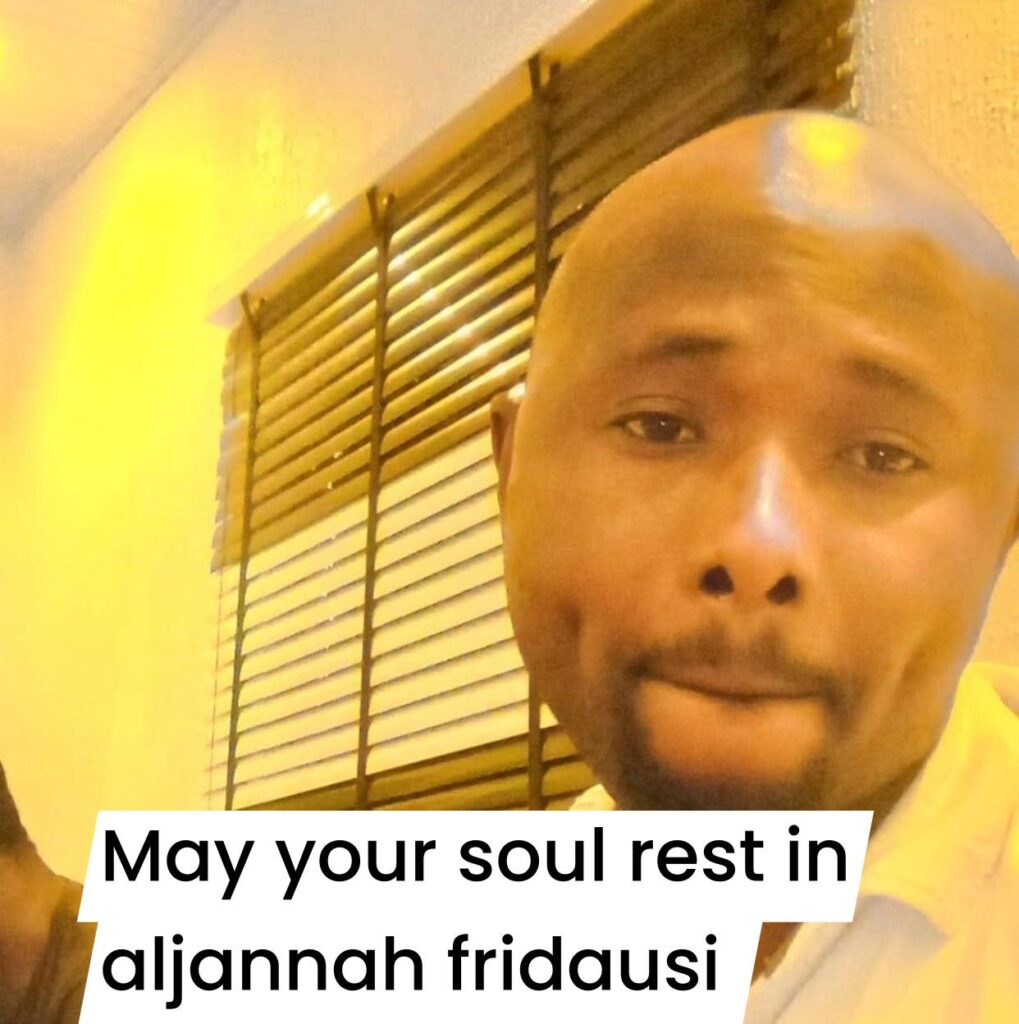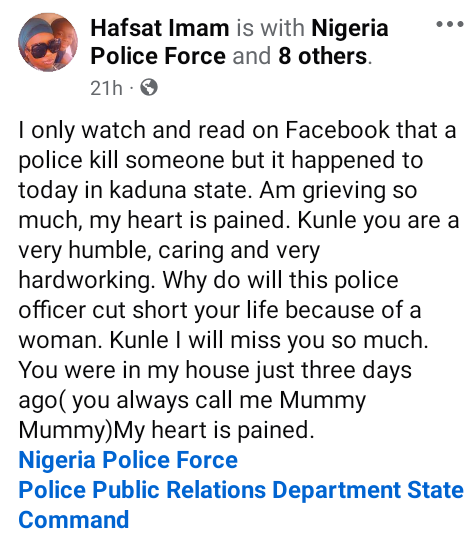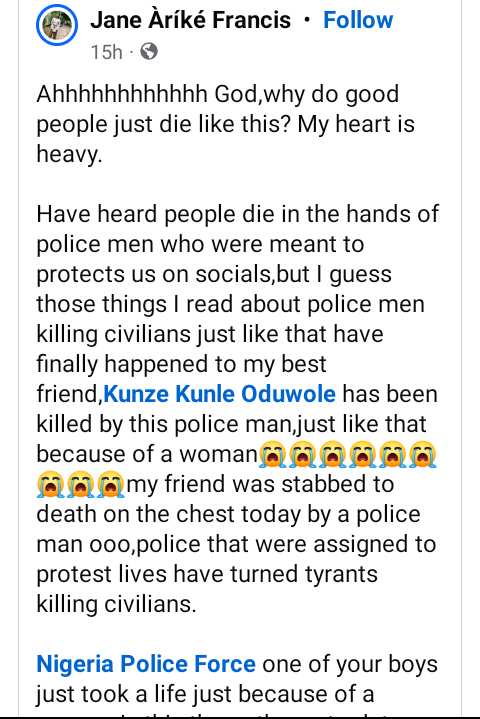On the evening of September 22, 2024, a tragic incident occurred at a bar in Barnawa, Kaduna State, where a man named Kunze Kunle Oduwole was allegedly stabbed to death by a police officer. The officer, identified as Chaniel Amanzi Moses, is now accused of murder after a heated confrontation between the two over a perceived insult.
Kunle, along with his friend and the friend’s girlfriend, had gone to the bar to relax. At some point during their evening, the woman left to use the restroom. On her way back to their table, she was reportedly insulted by the officer, who allegedly called her a prostitute. When she returned to her seat, visibly upset, she told her boyfriend about what had happened. However, instead of reacting, the boyfriend remained quiet.
Kunle, who was angered by the officer’s behavior, decided to take matters into his own hands. He stood up and walked over to the officer to confront him about the insult. What started as a verbal argument quickly escalated into a physical altercation. According to witnesses, during the argument, the officer pulled out a knife—later identified as a jackknife—and stabbed Kunle.
The stab wound proved fatal, and Kunle died at the scene before any medical help could arrive. The incident left those at the bar in shock, and word of the tragedy quickly spread.
The following day, on September 23, 2024, a woman named Hafsat Imam took to Facebook to share details of the incident, describing how Kunle was killed and identifying the police officer as the assailant.
“I only watch and read on Facebook that a police kill someone but it happened to today in Kaduna state. Am grieving so much, my heart is pained. Kunle you are a very humble, caring and very hardworking. Why do will this police officer cut short your life because of a woman. Kunle I will miss you so much. You were in my house just three days ago( you always call me Mummy Mummy) My heart is pained,” she wrote.
Another friend of the deceased, Jane Arike Francis, confirmed the details in a separate post, further corroborating the story.
“Ahhhhhhhhhhhh God, why do good people just die like this? My heart is heavy. Have heard people die in the hands of police men who were meant to protects us on socials, but I guess those things I read about police men killing civilians just like that have finally happened to my best friend, Kunze Kunle Oduwole has been killed by this police man, just like that because of a woman my friend was stabbed to death on the chest today by a police man ooo, police that were assigned to protest lives have turned tyrants killing civilians. Nigeria Police Force one of your boys just took a life just because of a woman, is this the oath you took to take lives,” she wrote.
The news of Kunle’s death has sparked outrage across Kaduna State and beyond, with many calling for justice and a thorough investigation into the case. The fact that a law enforcement officer, whose duty is to protect citizens, is at the center of this violent crime has intensified the anger and demands for accountability.
Police brutality and misconduct have long been a contentious issue in Nigeria, with many incidents of violence by officers going unpunished. This latest event has reignited debates about the role of law enforcement in society, particularly the misuse of power and the lack of consequences for officers who abuse their positions.
Kunle’s death is not only a tragic loss for his family and friends but also a reminder of the dangers that unchecked police power can pose to civilians. Many have expressed concern that if a police officer can allegedly kill someone over a mere verbal confrontation, then the safety of ordinary citizens is at serious risk.
This incident highlights the urgent need for police reform in Nigeria. Over the years, there have been numerous cases of police brutality, harassment, and extrajudicial killings, often with little to no justice for the victims. While efforts have been made to address these issues, including the disbandment of the Special Anti-Robbery Squad (SARS) in 2020, the root problems remain largely unresolved.
Citizens are calling for greater accountability within the police force. This includes better training for officers, stricter consequences for misconduct, and more transparent investigations into incidents of violence involving law enforcement. Without these measures, many fear that such incidents will continue to happen, leading to further loss of life and eroded public trust in the police.
As investigations continue into the death of Kunle, the public is watching closely to see whether justice will be served. The officer involved has reportedly been taken into custody, but it remains to be seen what charges will be brought against him and whether he will be held accountable for his actions.
Kunle’s death is a painful reminder of the fragile relationship between the police and the people they are meant to protect. It underscores the urgent need for reforms that not only address the behavior of individual officers but also create a system that values the safety and rights of every citizen.
In the meantime, Kunle’s family and friends are left to mourn his untimely death, hoping that his case will not be another forgotten tragedy but rather a turning point in the ongoing fight for justice and police reform in Nigeria.










